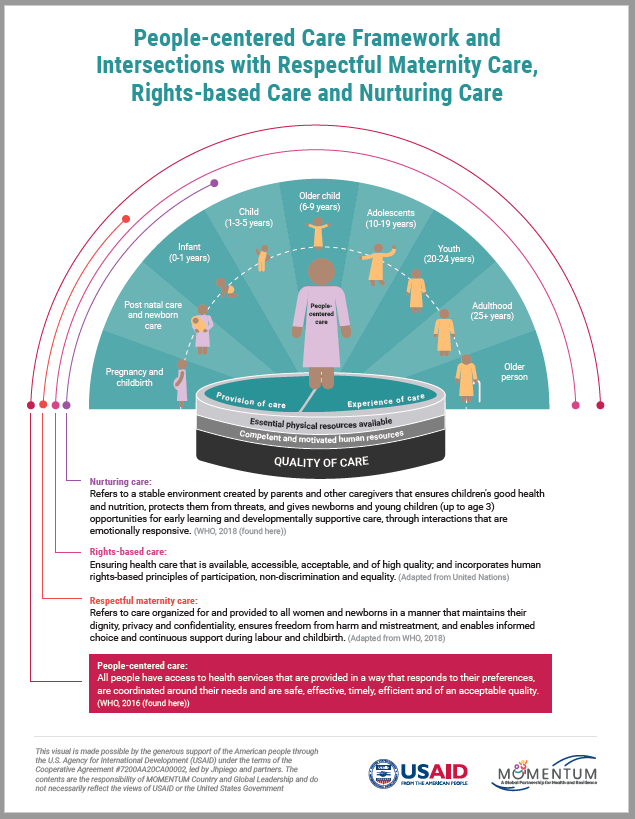Quality of Care, Experience of Care, and Respectful Care
To truly drive the change needed to reach global MNH targets, increasing access to, and utilization of, healthcare services alone is not enough. The quality of care must be improved as well. High quality care is safe, effective, timely, efficient, equitable, and people-centered. High quality MNH care is also integrated throughout the continuum of care and prioritizes the mother-baby dyad.
This focus on quality includes an expanding emphasis on women’s experience of care, and on the importance of delivering care that honors all people’s inherent dignity. The premise is simple and powerful – a positive experience of care is associated with better physical and mental health outcomes. And, when we believe that we will be treated with respect, we are more likely to seek out, and return for, the preventative and emergency care we (and our families) need to stay healthy.
Yet, in many settings – and as evidenced in the resources shared in this collection – women experience mistreatment during childbirth and are not empowered to make choices that put them in control of their own experience. In the past decade, acknowledgment and understanding of the phenomenon of mistreatment, and research into the types and frequency of disrespectful care experienced by women and newborns receiving maternity care, have expanded dramatically. This collection is intended to further action-oriented discussions around quality of care, both in terms of the provision of quality care and the experience of care / respectful care for women and newborns. New resources will continuously be added, and new perspectives sought and shared, on this topic.

This graphic represents MOMENTUM Country and Global Leadership’s (MCGL) attempt to illustrate how related terminology used in distinct technical areas – such as Reproductive, Maternal, Newborn, Child, and Adolescent Health (RMNCAH) – aligns with a broader framework of people-centered care. Multiple global conversations are underway regarding the people-centered care/respectful care framework, scope and definitions. USAID is currently developing a respectful care strategy and as that strategy evolves, the graphic will be modified to reflect updated understanding.

